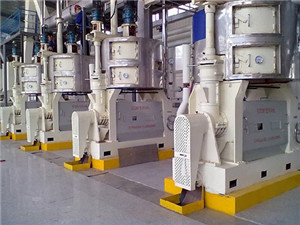A soybean oil process machine is specialized equipment used to extract oil from soybeans and refine it for human consumption or industrial purposes. Soybean oil production involves several steps, including cleaning, conditioning, extraction, and refining. The machines involved in this process are designed to maximize efficiency and oil yield while maintaining the quality of the final product.
Key Stages of the Soybean Oil Production Process:
1. Soybean Cleaning:
- Soybeans are first cleaned to remove dirt, stones, and other foreign materials. Machines like vibrating screens, de-stoners, and magnetic separators are used to ensure the raw soybeans are free of impurities.
2. Crushing and Flaking:
- After cleaning, soybeans are crushed into small particles to break the oil cells. Then, the crushed beans are flaked to increase surface area, which enhances the extraction efficiency. Flaking machines (roll mills) are used for this purpose.
3. Conditioning:
- The soybean flakes are heated in a conditioner to soften them and improve oil extraction efficiency. This process also helps to reduce the viscosity of the oil, making it easier to extract.
4. Oil Extraction:
The oil extraction process typically uses one or a combination of two methods:
- Mechanical Pressing: Soybean oil presses, such as screw presses, are used to extract oil by applying mechanical force. This method is more common in small to medium-scale production. While efficient, mechanical pressing leaves some oil in the residual material, known as the soybean cake.
- Solvent Extraction: For large-scale industrial production, solvent extraction machines are used. A solvent (usually hexane) is mixed with the flakes to dissolve the oil, which is then separated from the meal. Solvent extraction is more efficient and can recover almost all the oil from the soybeans.

5. Desolventizing:
- After solvent extraction, the oil/solvent mixture undergoes a process where the solvent is evaporated and recovered for reuse. The desolventized soybean meal is also processed for animal feed.
6. Crude Oil Filtration:
- The extracted crude soybean oil contains impurities like phospholipids, free fatty acids, and fine particles. It undergoes filtration to remove larger particles before moving to the refining stage.
Types of Soybean Oil Process Machines:
1. Soybean Oil Press Machines:
- These are mechanical screw presses used for squeezing oil from soybeans. They are used in small and medium-scale processing plants. They are easy to operate and offer moderate oil yields.
2. Soybean Oil Solvent Extraction Machines:
- These machines use solvents like hexane to dissolve and extract oil from the soybean flakes or the residual cake after pressing. These are more suitable for large-scale industrial production due to their high oil recovery rates.
3. Oil Refining Machines:
- After extraction, the crude oil is processed using refining machines. These can be fully automated or semi-automatic and include various modules for degumming, neutralization, bleaching, and deodorization.
4. Filtration Equipment:
- Filter presses or continuous filters are used to clean the crude oil before and during the refining process, removing impurities and unwanted particles.
5. Soybean Meal Processing Machines:
- After oil extraction, the soybean meal (a by-product) is processed further using machines like toasters and coolers. The resulting meal is a high-protein product commonly used in animal feed.

Advantages of Using Soybean Oil Process Machines:
1. High Efficiency: Modern machines, especially those using solvent extraction, can recover up to 99% of the oil from soybeans.
2. Cost-Effective: Automation and efficient design reduce labor costs and energy consumption, making the production process more cost-effective.
3. Scalability: Soybean oil processing machines can be designed to suit small, medium, and large-scale production, depending on business needs.
4. Versatility: Many machines used in soybean oil processing can also handle other oilseeds, such as canola, sunflower seeds, and peanuts, making them highly versatile.
5. Minimal Waste: The by-products, such as soybean meal and lecithin, are valuable and can be sold in various industries, minimizing waste.
Applications of Soybean Oil Process Machines:
- Edible Oil Production: Soybean oil is one of the most widely consumed edible oils worldwide. The machines play a crucial role in ensuring that the oil is pure, safe, and suitable for cooking, frying, and baking.
- Biofuel Production: Soybean oil is a key raw material in the production of biodiesel, which is an eco-friendly alternative to traditional fossil fuels.
- Food Processing Industry: Refined soybean oil is used in the manufacturing of various food products, such as margarine, salad dressings, and baked goods.
- Pharmaceuticals and Cosmetics: Soy lecithin, a by-product of the oil refining process, is widely used in pharmaceuticals and cosmetics as an emulsifying agent.
Soybean oil process machines are indispensable for efficiently extracting and refining soybean oil. From small-scale businesses to large industrial operations, these machines provide cost-effective, high-yield solutions for oil production. With the growing demand for both edible oil and biofuels, investing in reliable soybean oil process machinery ensures long-term profitability and sustainability.













.png)


